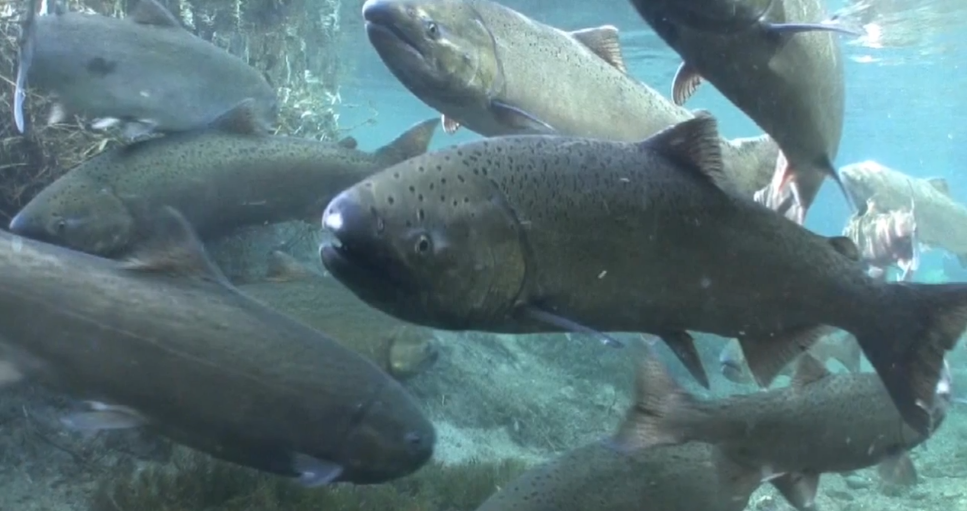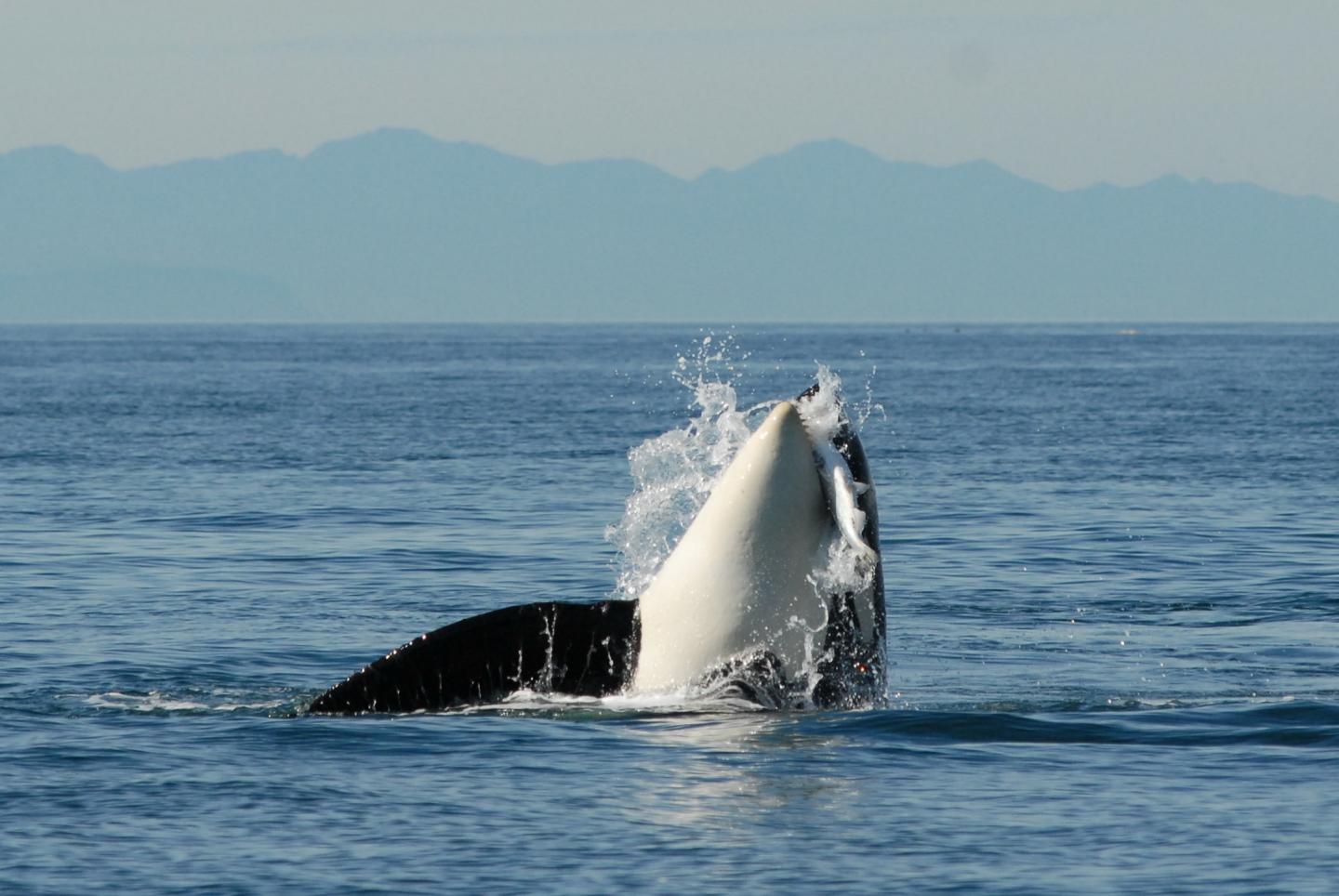Protecting orcas from extinction
Southern Resident killer whales, or orcas, are a beloved icon of the Pacific Northwest. We served on Governor Jay Inslee's Southern Resident Killer Whale Recovery Task Force, which developed proposals for orca recovery and sustainability.
The task force issued recommendations in 2018 and 2019, some of which became legislation in each of the following years. We are responsible to oversee and carry out many of the investments that were adopted.
Southern resident orcas typically visit the Salish Sea from late spring through the fall. Photo: Washington Department of Natural Resources.
Orca survival
In spite of their protected status as an endangered species by Washington state, the U.S., and Canada, the Southern Resident orca population has fallen. It has declined from 98 in 1995 to only 74 as of August 2021. Even with the birth of two calves, this group's numbers remain dangerously low.
The orca-salmon connection
Southern Resident orcas reside in Puget Sound and the Salish Sea waters of British Columbia from late spring through the fall. They also migrate along the west coast from Northern California to Southeast Alaska.
This orca species feeds primarily on Chinook salmon, which also are in decline, adding urgency to salmon recovery efforts in Washington. Many Southern Residents have been observed to be in poor physical condition and are experiencing difficulty raising calves.
The Southern Resident orcas face three main threats:
- Availability of Chinook salmon
- Toxic contaminants in the environment
- Disturbance from noise and vessel traffic
The task force set up work groups to focus on each of these threats. We have been leading the group focused on toxic contaminants. This team is working to identify how the state can help reduce the impacts of human-caused contamination on the orcas. Drawing from the closely aligned Puget Sound Action Agenda, the contaminants group:
- Identifies actions most likely to be implemented and have a beneficial impact on southern resident killer whales.
- Provides the Governor’s task force with decision-making support.
- Helps develop a strategic package for short-term and long-term actions.
How to stay involved
- Help orcas by helping the environment
- Get email updates from the task force
- Join volunteer whale-watching vessels to help deter orcas from oil spills
Photo credit:David Ellifrit, Center for Whale Research
Ongoing strategies
The 2020 Legislature adopted many of the task force recommendations. As the COVID-19 pandemic and related protective restrictions set in, Governor Inslee vetoed numerous bills and sections of bills — including parts of the orca package — to protect funding for other essential state functions. We're continuing our work to implement legislation adopted as part of the 2019 package. And, a great deal of our ongoing work to protect and restore the environment continues to benefits orcas.
Related links
Contact information
Derek Day
Stormwater Strategic Initiative
derek.day@ecy.wa.gov
360-485-3905




